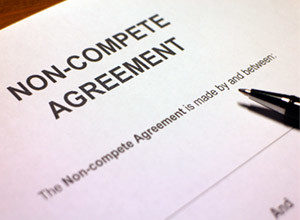DO’S AND DON’TS FOR USING NON-COMPETE AGREEMENTS
 Non-compete agreements can offer valuable protection to an employer’s business interests. They are among the 10 items employers should consider including in their employee hiring packages. These agreements provide that “one party (usually an employee) will not enter into or start a similar profession or trade in competition against another party (usually the employer).” This lessens the possibility that knowledge and sensitive information gained by employees during the course of their employment will be used to compete against the past employer. However, non-compete agreements must be done correctly to be enforceable.
Non-compete agreements can offer valuable protection to an employer’s business interests. They are among the 10 items employers should consider including in their employee hiring packages. These agreements provide that “one party (usually an employee) will not enter into or start a similar profession or trade in competition against another party (usually the employer).” This lessens the possibility that knowledge and sensitive information gained by employees during the course of their employment will be used to compete against the past employer. However, non-compete agreements must be done correctly to be enforceable.
There are several do’s and don’ts to help ensure your non-compete agreement is legal:
- Don’t use them for most low-level employees. In New York, the Attorney General’s (AG) office has been increasing its scrutiny of non-compete agreements looking at the types of employees subject to the agreements. In 2 recent cases, the AG investigated and charged companies with their “unconscionable” non-competes because they applied to low-level employees who had little to no knowledge of any trade secrets or confidential information. Both companies settled and agreed to change their policies.
- Do use them for high level employees or those with unique skills. The best approach is to limit use of non-competes to employees who have access to trade secrets or confidential information or have unique skills. In these types of situations, it is more likely that the employer is protecting its legitimate business interest by requiring a non-compete.
- Don’t make them too broad in scope. The provisions of the non-compete should be narrowly tailored to protect a legitimate business interest. That means the agreement should be appropriately limited in how long it lasts, its geographic scope, and the activities prohibited. Courts are concerned about restricting competition and leaving employees without a way to make a living and will balance those interests against the employer’s. Therefore, the agreement should not be unreasonably burdensome to the employee and it must be necessary to protect the employer’s trade secrets, customer lists or similar interest.
- Do consider other solutions. Confidentiality agreements are another option to ensure that employees can’t use or disclose proprietary information. They apply to all employees who have access to such information regardless of whether they are high-level or low-level employees. In addition, non-solicitation agreements may be helpful. These agreements prohibit employees from contacting clients or colleagues either directly or indirectly to solicit business. However, they are also subject to review based on how long they last, geographic area and scope of client relationships covered.
- Don’t be afraid to use them in the right cases. Although they can be challenging to enforce, there are legitimate reasons to use non-compete agreements. In fact, not using them in certain cases can be very detrimental. Businesses should consider how to best protect themselves from past employees who may seek to use knowledge of the business to gain a competitive advantage. A qualified attorney can help to determine who should be subject to a non-compete and how to draft it so that it is most likely to be enforceable.
If you are considering asking employees to sign a non-compete agreement or need to have your existing agreements reviewed, contact us for a consultation.
Read more about our employment law practice.
